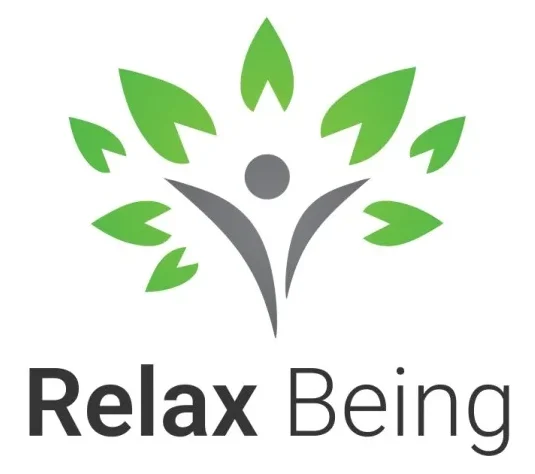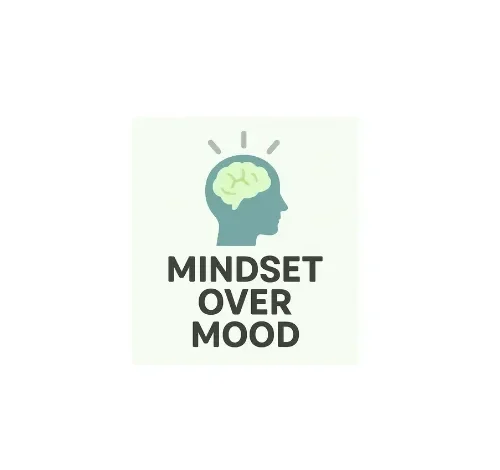Sleep and mental health
From my experience working with people struggling with stress, sleep and mental health are deeply connected in ways many overlook.
Poor quality sleep can trigger anxiety, irritability, and low mood, while unresolved sleep and mental health issues can make it difficult to fall or stay asleep—a classic example of the vice versa effect.
Simple measures like sticking to a bedtime routine, limiting screen time before bed, and creating a calm sleeping environment can improve both your rest and overall mental wellbeing.
Personally, I’ve noticed that even small adjustments, such as journaling thoughts or practicing deep breathing, can significantly enhance sleep patterns, which in turn stabilizes mental health. This two-way relationship means investing in one directly improves the other, creating a positive cycle where better sleep fosters stronger mental resilience and emotional balance.
The impact of sleep on mental health
The impact of poor sleep on mental and emotional state is profound. When stressed or anxious, it becomes harder to relax at bedtime or during the night, and sleep deprivation can drastically affect mood and overall health.
Stressful events and ongoing life conditions can contribute to depression and anxiety, forming a vicious circle where symptoms of lack of rest make things worse.
A critical function of the body is to regulate these issues and maintain balance, but repeated difficulty managing emotions, staying focused, recalling information, and making decisions is common in the sleep-deprived.
Experiencing stress from a disorder or poor quality of sleep and mental health can exacerbate negative feelings and make it harder to cope with daily stressors.
Understanding these disorders is essential, as many people face conditions like worrying about not getting enough quality sleep. Simple ways to set your mind for rest, such as routines that relax the body and mind, can affect your understanding of sleep’s role and provide actionable steps to improve your overall well-being.
From personal experience, I’ve noticed that small adjustments like a consistent bedtime, calming pre-sleep rituals, and mindful reflection help regulate mood, cognitive functions, and emotional balance, creating a healthier cycle rather than perpetuating issues.
What can cause sleep and mental health problems?
From my experience working with people struggling with sleep and mental health, I’ve noticed that several things can quietly disrupt rest. Everyday stress and persistent worry often sneak into the mind at night, making it hard to relax. Even a small change in the routine, like traveling across time zones causing jet lag, or irregular shift work, can disturb the body’s natural rhythm.
Environmental factors like noise, temperature, and the comfort of the bedroom also play a crucial role, as the body responds differently to these subtle cues.
Certain lifestyle habits and substances can further intensify sleep and mental health problems.
For example, caffeine or alcohol consumed late in the day can interfere with falling asleep, while physical activity timing and mental strain from overthinking or work deadlines can delay rest.
Medicines with stimulating side effects may also contribute to nighttime disruptions, affecting overall health. Recognizing these triggers early and adjusting routines can make a noticeable difference in sleep quality and mental well-being.
Common sleep disorders
From my experience working with individuals struggling with sleep difficulties, it’s clear that underlying issues often go unnoticed until they become severe.
Many people assume tossing and turning at night is normal, but when clinical signs persist, it’s important to seek professional guidance. A diagnostic approach can help identify conditions such as insomnia, sleep apnea, or restless leg syndrome, and understanding the criteria for these disorders ensures that treatment is precise and effective.
Proper evaluation not only addresses nighttime disturbances but also reduces the toll on mental health during the day. I’ve seen that once clinical criteria are carefully applied, patients gain clarity on their issues, and what seemed severe becomes manageable.
Consistent sleep and mental health patterns, guided by professional diagnostic insights, can dramatically improve overall wellbeing and prevent long-term complications.
Insomnia
Insomnia is a common sleep issue that affects approximately one in three adults at some point in their life. Many people experience short-term insomnia, often caused by a stressful event such as travel or a major life change.
For example, you might initially have trouble sleeping, wake in the middle of the night, or find yourself getting up too early. In most cases, this typically resolves within a few weeks, and sleep returns to normal without intervention.
However, others may develop long-term insomnia, meaning the period lasts longer than three months. Having insomnia can cause difficulty falling asleep, staying asleep, or getting back to sleep once awake, and it might also lead to feeling tired throughout the day.
Persistent insomnia can even affect mental health, triggering symptoms like anxious, depressed, or bad mood. Speaking from experience, when sleep is disrupted for an extended period, simple tasks feel harder, and emotional resilience drops, making it essential to recognize and address insomnia early.
Circadian rhythm disorders
Living through a shift in your daily routine can sometimes feel like your body’s natural internal clock is rebelling. This misalignment often happens when the external environment like light, noise, or social schedules doesn’t match your body’s rhythm, creating a disorder that affects mood, focus, and overall mental health.
From my own experience working late-night hours, I noticed how easily energy dips and irritability rise when the internal clock is disrupted.
This disorder is not just about being tired; it’s a signal that the body’s timing and the external world are out of sync. Whether due to irregular work hours, travel, or lifestyle shift, addressing the misalignment by gradually adapting to natural light and structured routines can help restore the internal clock and improve mental resilience.
Understanding this delicate balance has helped me guide others toward strategies that honor both their body’s needs and the external environment.
Parasomnias
In my experience working with individuals facing abnormal sleep patterns, I’ve noticed that behaviours during sleep can often be more than just quirky.
Conditions such as sleepwalking, night terrors, or sleep paralysis can seriously disrupt rest and affect daily functioning. People experiencing these episodes often describe feeling trapped or frightened, which can compound stress and anxiety, ultimately influencing sleep and mental health.
Addressing these abnormal behaviours requires patience and awareness. Maintaining a consistent bedtime routine, creating a safe sleep environment, and seeking professional guidance can help manage episodes during sleep.
From personal observation, even small adjustments, like reducing stress before bed or tracking sleep patterns, can decrease the frequency of sleepwalking and night terrors, while proper support can help people cope with sleep paralysis episodes without panic.
Sleep apnoea
From my experience working with patients struggling with sleep and mental health issues, apnoea is one of the most overlooked conditions that can deeply affect mental health. It happens when breathing stops and starts repeatedly during rest, constantly interrupting the natural sleep cycle.
People often snore loudly, make gasping or choking noises, and wake up feeling tired. Over time, this can make it hard to concentrate during the day, trigger mood swings, and even cause frequent headaches upon waking.
Addressing sleep apnoea often requires a combination of prescribed interventions and lifestyle changes. Special devices like CPAP machines can help keep the airway open, while losing weight or sleeping on the side may ease mild cases. By improving breathing during rest, you not only reduce noises that disturb sleep but also regain the energy and focus needed to handle everyday challenges.
What can I do to have better sleep?
From my own experience and research in sleep and mental health , adopting healthy habits can greatly enhance your rest. Small changes in daily routines, like maintaining consistent bedtime routines or reducing screen time before bed, are key.
Improving sleeping patterns doesn’t happen overnight, but by gradually introducing these adjustments, you can achieve better sleep that feels restorative and energizing.
I’ve gathered tips that consistently help people sleep deeper and feel more refreshed. Simple actions such as avoiding caffeine late in the day, keeping your bedroom dark and cool, or practicing relaxation exercises before sleep can greatly improve your overall sleep and mental health .
Over time, adopting these strategies and respecting your natural sleep rhythm allows you to enhance sleeping efficiency, making it easier to wake up feeling alert and balanced.
Set up the ideal sleep and mental health environment
To achieve better sleep, start with a comfortable bed and a suitable mattress that supports your body in the right position, keeping your back and neck from feeling sore in the morning. Choose sheets and blankets that keep you warm without overheating, and maintain a cool room temperature with a fan if needed.
Block outside noise with white noise from a machine, and make your environment dark using blackout curtains or an eye mask. Keep options to settle down without constantly turning the clock away, and prevent watching screens that raise stress during the final hours, as it can make falling asleep difficult.
From my experience, small adjustments like these transform your room into a sanctuary, making sleep deeper and more restorative.
Manage your stress
One of the most helpful ways to improve overall sleep and mental health and emotional wellbeing is to incorporate stress management techniques into your daily routine.
From my experience sleep and mental health, practices like meditation, deep breathing, yoga, and tai chi not only enhance calmness and tranquility but also significantly reduce tension and anxiety, leading to better quality sleep.
Simple examples for sleep and mental health, like keeping a journaling habit or scheduling mindfulness practice help maintain focus, concentration, balance, and resilience against daily pressures.
Making self-care a total priority and consistently applying these coping strategies allows you to feel calmer during the day, improving both mental clarity and emotional wellbeing at night.
Watch your diet and caffeine intake
From my experience helping people improve their sleep and mental health, one of the simplest yet overlooked habits is how we fuel our bodies in the evening.
Avoid heavy meals close to bedtime, as they can disrupt digestion and keep you tossing in bed. Instead, opt for light snacks if you feel hungry, and try to finish your last intake earlier, ideally before 4pm for caffeine or late-night indulgences. Limit consumption of caffeine and alcohol, as both can interfere with deep sleep cycles.
Small adjustments like these often have a surprisingly big impact, helping you fall asleep faster and wake up feeling refreshed rather than groggy.
Create a relaxing bedtime routine
To truly support your sleep and mental health, creating a relaxing bedtime routine is essential. After a long day, I find it helps to wind down by letting go of worrisome thoughts and releasing tension from both mind and body. Incorporating relaxation techniques like deep breathing, meditation, or gentle stretching and yoga allows your muscles to relax, signaling your body that it’s time for sleep.
A warm shower or bath an hour or two before bed helps with the body temperature drop, making you naturally sleepy. Using a sleep app with guided meditations or calming music can further ease the process of falling asleep and prevent tossing and turning. Engaging in any relaxing activity for at least 20 minutes until you’re feeling sleepy ensures that when you go back to bed, your mind and body are fully prepared to drift into sleep.
What if my child has sleep and mental health problems?
When children experience sleep problems, it can affect their growth, development, and overall sleep and mental health. Younger children may show reluctant behavior at bedtime, struggle to go to sleep, or wake frequently during the night. Some may experience nightmares, sleepwalk, or even display signs linked to disabilities like autism.
Observing difficulty in maintaining a consistent sleep pattern or excessive sleeping can be an early sign that professional support is needed. In my experience working with families, even small disruptions in uninterrupted sleep can have a noticeable family impact, affecting everyone’s mood and daily routine.
Practical self-help measures can often make a difference before seeking medical advice. Keeping a sleep diary helps track patterns, including continued reluctance to get up or difficulty staying asleep for long periods. Adapting bedtime routines to suit your child’s needs, maintaining a calm environment, and gently reinforcing consistent sleep patterns often improves sleep.
When these strategies aren’t enough, a doctor can assess underlying causes and recommend tailored solutions to prevent depression or other sleep and mental health problems. Supporting a child’s sleep early ensures healthier development, better mood, and a more harmonious family impact overall.



